Typically associated with the study of Earth’s upper atmosphere and beyond, satellites deployed by the National Aeronautics and Space Administration (NASA) also augment our understanding of Earth’s ecosystems, including critical information about the ocean such as locations of algal blooms and levels of marine photosynthesis.
Ground Truthing for NASA – ASU BIOS Selected to Validate Satellite Measurements of Plankton and Ocean Illuminance
February 29, 2024
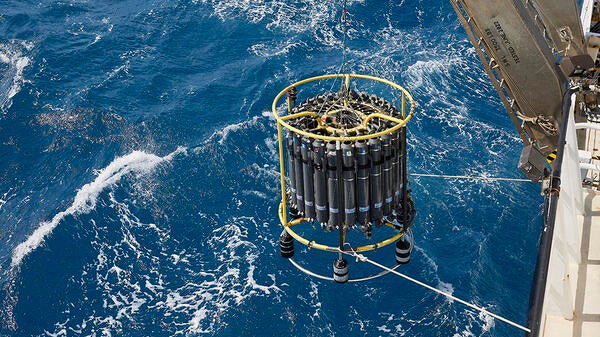
Dr. Fred T. Mackenzie, In Memoriam
February 01, 2024
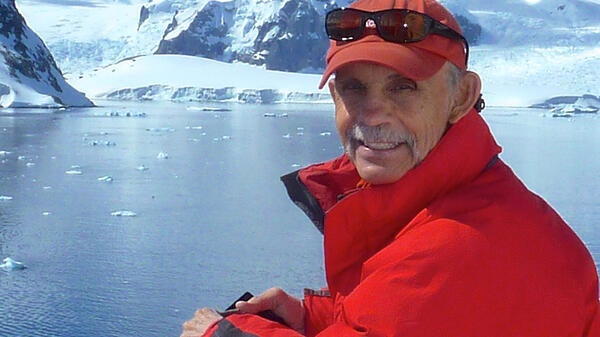
With sadness, the Bermuda Institute of Ocean Sciences has received news of the passing of Life Trustee, Dr. Fred T. Mackenzie.
Canary in the Coal Mine: How One Small Island Became the Face of Bermuda’s Changing Climate
January 22, 2024
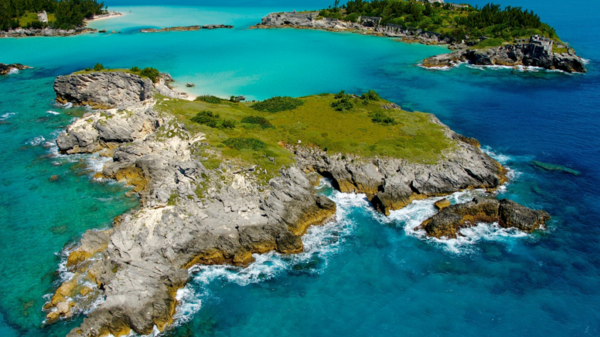
Charles Island is one of a group of small, uninhabited islands that form a broken chain across the southern side of Castle Harbour. At least, for now it is one island — pretty soon it is likely to be two.
Atlantic Ocean near Bermuda is warmer and more acidic than ever, 40 years of observation show
December 15, 2023
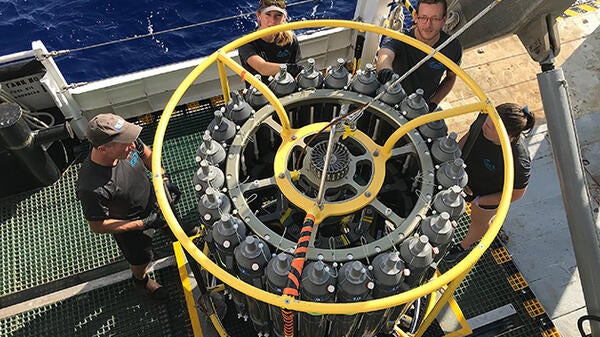
Oceans are constantly changing. These changes don’t only affect marine life but also have wide-reaching consequences for land dwellers. To document them, monitoring stations in the North Atlantic Ocean have been active for decades. Now, researchers have reported on the latest changes, showing that compared to 40 years ago, the ocean near the island of Bermuda is warmer, saltier, more acidic, and has lost oxygen. Long-term monitoring can provide information about existential challenges societies will face in the near future, the researchers said.
ASU offers degrees to shape thriving ocean futures
May 28, 2024
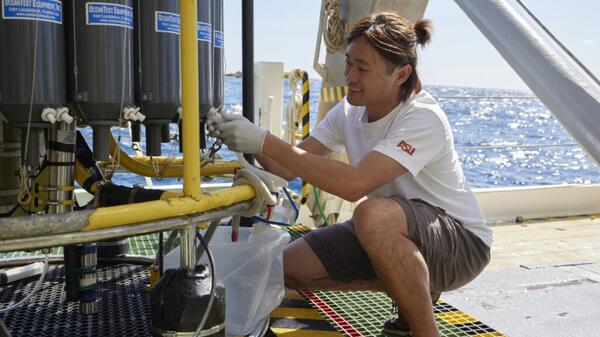
Arizona State University launched four new ocean-focused degree programs within the College of Global Futures — a Bachelor of Science in ocean futures, a Bachelor of Science in ocean futures with a concentration in coastal and marine sciences, an online Master of Science in coastal and marine science and management, and a PhD in ocean futures.
UM professor named AAAS Fellow
November 29, 2018
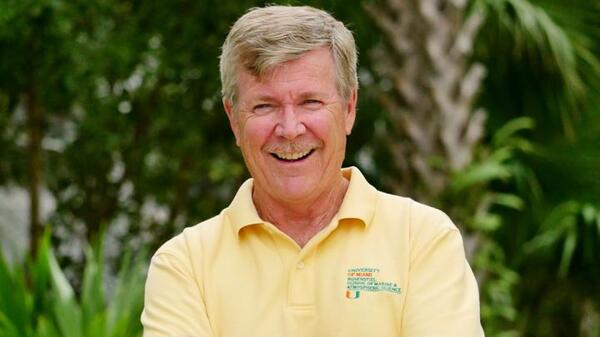
MIAMI– University of Miami (UM) Rosenstiel School of Marine and Atmospheric Science Professor Dennis Hansell has been named a Fellow of the American Association for the Advancement of Science (AAAS). Election as a AAAS Fellow is an honor bestowed upon AAAS members by their peers.
Robust Year Ahead for BIOS-Operated Research Vessel
January 31, 2021
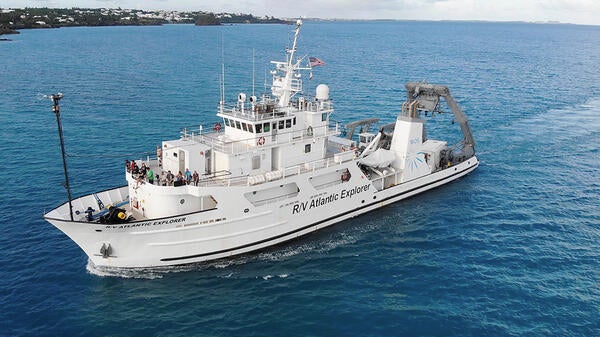
BIOS marine superintendent and ship captain Quentin Lewis is calling the months ahead for the Institute’s research vessel the Atlantic Explorer “very healthy in terms of operating days.” At the start of 2021, BIOS has 195 days at sea funded for science programs, he said.
Nitrous Oxide Cycling Study Points to Microbial Networks Key to Maintaining the Balance of Marine Nutrients
July 24, 2023
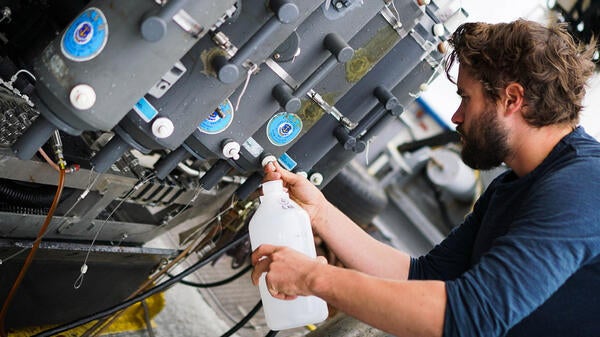
Oceans are critical to stabilizing the world’s climate, absorbing a quarter of all carbon dioxide emissions and capturing 90 percent of the excess heat they generate. By some estimates, the ocean also accounts for up to half the annual emissions of another greenhouse gas – nitrous oxide (N2O), the third most important climate emission after carbon dioxide and methane. With the climate changing amid record high atmospheric levels of all three gases, the importance of the marine nitrogen cycle is ripe for study.
Global Atlantic Financial Group leads funding to support deep-sea research and education efforts at BIOS
July 15, 2023
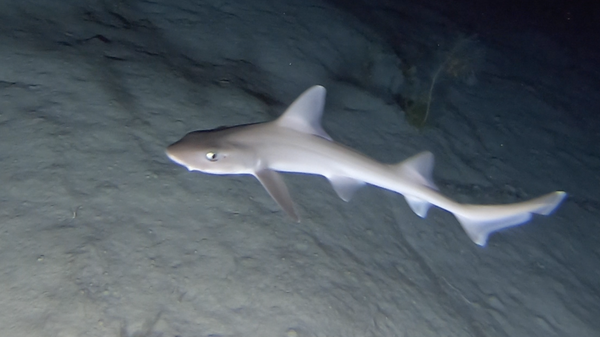
The Bermuda Institute of Ocean Sciences (BIOS), a unit of Julie Ann Wrigley Global Futures Laboratory and School of Ocean Futures at Arizona State University, has announced funding support for deep-sea research and education training for Bermudians. The funding is led by a charitable grant from the Global Atlantic Re foundation, which is sponsored by Global Atlantic Financial Group (Global Atlantic), a leading insurance company meeting the retirement and life insurance needs of individuals and institutions.
From Alaska to Bermuda
July 21, 2023
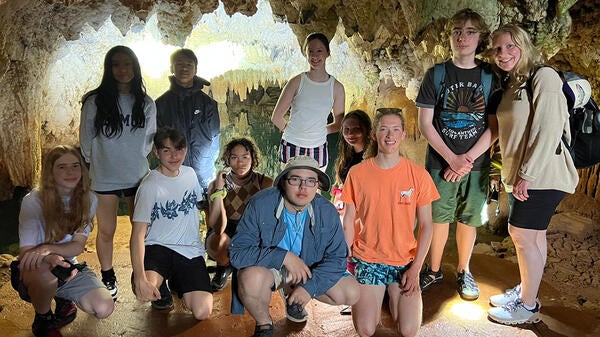
The transformative power of education lies not only in the knowledge gained within the classroom walls but also in the experiences that broaden young minds beyond their familiar surroundings. Such is the case for a group of 23 students from Polaris, a K-12 grade school in Anchorage, Alaska (U.S.). In May, these ambitious learners embarked on a once-in-a-lifetime journey to Bermuda, where they had the unique opportunity to visit the Bermuda Institute of Ocean Sciences. Over the course of 10 days, these curious young minds and their educators were immersed in a variety of interactive activities that took learning beyond the confines of their Alaskan classroom.